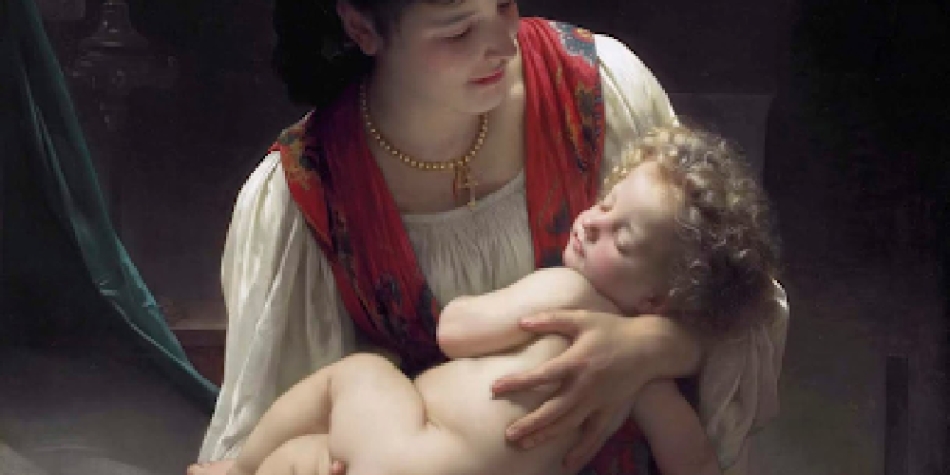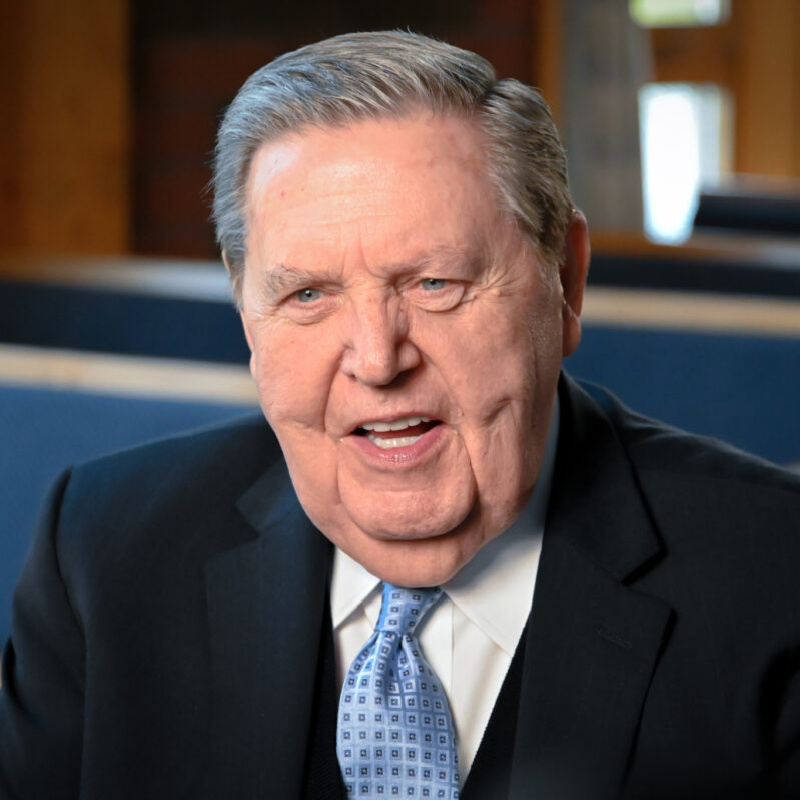William Adolphe Bouguereau, Mother and Child
Before getting married, I was an adventurous young woman. I had lived overseas much of my life, done 3 research trips to Africa, and taught English in China. I had been awarded several university research grants, published a paper with a professor, and looked forward to a career in environmental development. I was admitted to three prestigious postgraduate programs at Oxford and Cambridge and determined I would attend the University of Cambridge.
Yet, despite my proclamations that I was in no hurry to get married (akin to a liberated heroine in a Jane Austin novel), deep down, I knew I wanted a family. My childhood had shown me a positive model of family life, and my religious convictions emphasized its importance. So when my knight in shining armor arrived, and the miracle of love fell upon me, I got engaged.
Miraculously, soon after my engagement, I was selected as a finalist for the Gates Scholarship (Cambridge’s equivalent to the Rhodes Scholarship). I had the chance to have my entire education at Cambridge paid for. After spending weeks preparing for the interview, I flew to Annapolis and competed for the scholarship with about twenty other applicants. I wasn’t among those chosen for the scholarship. I was heartbroken. After I had my first child, a beautiful son, I knew this was no low road.
“Choose your sacrifice. Because sacrifice is inevitable. But at least you get to choose it!” ~ Jordan Peterson
When Motherhood is a Sacrifice
Recently I asked a group of young women in church what hopes and dreams they have for the future. They went around the room and described the colleges they hoped to attend, their dream jobs, and the trips they wanted to take. They were excited and hopeful about the future, and I encouraged them in their aspirations. I was surprised, however, that none of these girls mentioned their desire for marriage and family. Perhaps they felt awkward admitting such hopes, which is a shame, but increasingly I find that even religious and socially conservative girls seem to have dropped “being a mom” to the bottom of their list of dreams. Many young women now see the path to womanhood as passing through universities and corporations, not the home.
In most traditional cultures, there is a “coming-of-age” ceremony, initiation, or ritual associated with passing a boy into manhood. In the past, to be considered a man, young men had to do something difficult to prove themselves. They performed a feat of strength, went on a difficult journey, or fought in battle. These rites of passage are still common in some tribal and religious cultures today (serving missions). In these ways, boys put away “childish things” and take on the duties and responsibilities of manhood.
For young women, the transition to womanhood has traditionally revolved around their marriage and having their first child. But times have changed, and the passageway to womanhood has become obscured. There are some obvious downsides to using marriage and childbirth as a mark of womanhood. To name only one, not all women have the opportunity to be mothers. There are many roads to being a fully-developed woman, and those not blessed with motherhood are no less worthy of the title woman.
However, for those women who do become mothers—the transition into motherhood is often difficult, a coming-of-age of sorts. It is a time of great sacrifice. Yet this shifting from a young carefree girl to a nurturing mother can ennoble us. As we see the cultural shift away from marriage and mothering, it is vital that we reaffirm to young women, and to ourselves, the rewards and fulfillment that come from the sacrifices of motherhood.
The Proper Perspective on Sacrifice
It’s okay to admit it—motherhood involves sacrifice. Sacrifice—the very word carries with it a feeling of dread. No one wakes up eager for a day full of sacrifice. Some will say, “You must have the wrong perspective if you think motherhood is a sacrifice.” I say, have you ever been awakened 6 times a night by a crying newborn? If you think that’s not a sacrifice, you are a masochist. It doesn’t help to deny the sacrifices of motherhood. Rather than attempt to take the sacrifice out of motherhood, downplay it, or minimize it, perhaps we need to develop a new relationship and understanding of the concept.
Much the same as we read in the New Testament, Dr. Jordan Peterson reminds people, “ultimate sacrifice produces the ultimate reward.” He goes on to describe sacrifice as a bargain we make with the future—laying down our old life, our old desires, and trusting that something greater will one day rise. Such a sacrifice of self means stepping into struggle, for change is always difficult—but we are promised that our investment will pay off.
We sacrifice because we love, and we love because we sacrifice. Love is the lasting motivator—love of God, of our spouse, of our children, and our fellow man. Deep inside of us, there is this yearning for belonging and connection. Too often, our modern world has convinced us to point this yearning toward material pursuits or man-made ideologies rather than our families or neighbors. It is important to make sure our sacrifices are for things of most worth.
“And walk in love, as Christ loved us and gave himself up for us, a fragrant offering and sacrifice to God.” ~Ephesians 5:2
When we become mothers, we make a choice to sacrifice. We lay down our carefree youth, and we pick up the duties and responsibilities of having children. But, as I have found, our sacrifice can yield glorious returns.
The Split of Modern Women
If you see the messages young women are bombarded with by our modern culture, there is no doubt most would say that I chose the lower road. Our culture, rather than championing the duty and sacrifice performed by mothers, often demeans or disregards these sacrifices.
But after I had my first child, a beautiful son, I knew this was no low road. The overwhelming love I felt for this child was unlike anything I had ever experienced. But the most difficult sacrificing lay ahead. Miraculously, the more I sacrificed my own desires for my children’s, the more my desires changed.
I certainly wasn’t acclimating to motherhood the way I wanted. Despite a deep, fulfilling love for my children, in my early days of motherhood, I felt like a conflicted woman—torn apart by two dreams. Sometimes as I sat down to pretend-play with my toddler, it was painful, like this wasn’t the REAL me. The REAL me was adventurous and academic … NOT into Dora the Explorer. I remember a feeling of longing descending upon me when changing dirty diapers; I thought, “Where did the old me go? Has she been lost forever? Are all my travels, studies, and passions gone—lost inside this soiled diaper?” I imagined what might have been and all I might have achieved. My unfulfilled life, in all its unrealistic glory, plagued me. I never included duty, rejection, and sacrifice in these fantasies, just a land of self-fulfillment. Then I would snap back into the present and feel guilty for my pride—did I think I was too good to change diapers? What about all the noble women throughout history who had done their duty and had not whined about it?
I felt split—split between the former me, the independent and selfish child I had been, and the mother I had chosen to be. I was split between the imagined life of influence and fulfilled potential and the real life of picking up toys and disrupted sleep.
Why The Split?
A quick survey of media, satire, and podcasts shows that motherhood is indeed lame. Where are the portrayals of happy moms living meaningful lives with their families? There’s a reason for the lack of such portrayals. It is easy to list all the hard things about motherhood, for they are easily recognizable—piles of laundry, cooking, cleaning, and disobedient children. But how do you show the love you feel for a newborn baby, the joy you have in your children’s accomplishments, or your bond with your teenage son? Every attempt at such descriptions falls flat. The joys of motherhood are not easily described because they are spiritual and emotional in nature. Yet these sustaining joys are the fuel for the sacrifices we make and the payback for our efforts.
But also, we mothers don’t want to brag. With all the posturing and fakeness of social media, we want to be genuine about the true nature of life, and we don’t want other women to feel inadequate in comparison. So we often hold back on sharing our joy, our fulfillment, or our pride in our children. But unfortunately, we often fill that silence with something worse, something that does not give accurate expression to our experiences and can transform that experience itself. We complain about motherhood; we overemphasize the bad and minimize the good. We share the struggles, not the successes. So the next generation continues to ask. “Why would I ever want that? It doesn’t look very fun.”
The Meaning of Motherhood
Thankfully, my upbringing, faith, and wisdom from others aided me as I transitioned my mind to motherhood. Instead of going the route I had seen some women go and decide that I was going against my true nature and quit (either by disengaging or making excuses for their deficiencies), I decided that this is what sacrifice felt like; it had to be difficult—that was part of the process. And thus, my attitude changed.
We all have crosses to carry. In the early years of motherhood, my cross was my longing for the “missed” opportunity of going to Cambridge. It was indeed a loss. But I had allowed myself to get lost in the fantasy of an unfulfilled dream. I needed to let go of the past so I could fully embrace the present and become a woman capable of finding joy in her chosen path. I had a duty—a duty I had chosen. And one I loved deeply—my children.
“To love is to suffer, and there can be no love otherwise.” ~Fyodor Dostoevsky, Notes from Underground
A Life of Influence
G.K. Chesterton, a 20th-century British social commentator, questions the modern denigration of the influence of the typical homemaker, or “Mrs. Jones,” “How can it be a large career to tell other people’s children about the Rule of Three [a writing principle], and a small career to tell one’s own children about the universe? How can it be broad to be the same thing to everyone and narrow to be everything to someone? No. A mother’s function is laborious but because it is gigantic, not because it is minute. I will pity Mrs. Jones for the hugeness of her task; I will never pity her for its smallness.”
Many young women dream of the glories of a future career, but reality is likely to be bleaker than their imaginings. In an interview, Jordan Peterson rightly points out that very few people will ever have a truly meaningful career. Most people end up with jobs—ones they dread, ones they don’t find particularly meaningful. “It’s a lie, as far as I am concerned, because what most people realize as they get older—is that what people find most satisfying about life is … well … love. A good marriage, kids …”
Money is a necessity of life, and not all women can be full-time moms. That is okay. But let’s not tell young women the lie that a job will fill their “meaning void.”
“God sent you here not to be successful, but faithful.” ~Mother Teresa
Eventually, women figure out that the modern emphasis on careers before relationships is backward. They wonder if they made the wrong sacrifice for the wrong rewards. Statistics show women in their 30s are fleeing demanding professional careers to try and beat their fertility deadline.
A mother’s investment of time and energy in their young children pays off. Their love and influence will live in their children’s minds and spirits forever. Jordan Peterson says, “Your main job as a parent is to socialize your child in the first four years of life.” Those early years are critical in building resiliency, emotional attachment, teaching values, and guiding their perceptions.
“All that I am, or hope to be, I owe to my angel mother.” ~Abraham Lincoln
A parenting truism is that the days are long, but the years are short. The foundation of our children’s character is laid in those long days, but the years of training fly by. As Dr. Peterson says in a podcast, “Kids are unbelievably good company; they pay you back for your care of them. You have little kids for four years, and if you miss it, it’s done! And that’s that. That period between 0-5 is a peak experience in life, and it isn’t much of your life, and if you miss it—it’s gone! You miss it at your peril, and you don’t get it back.” So yes, it is a struggle—but it’s worth it.
Accepting The Struggle
For the many young mothers who may struggle with their coming of age into motherhood, there is no shame in finding the transition difficult. Being a Mother is not simply a choice; it is someone we must become through a process of sacrifice and maturation. It often requires discipline and willpower before we find enjoyment. I determined to sit on the floor and teach my stubborn 5-year-old to read, not because I enjoyed it, but because I wanted my child to read. I played dress-up with my daughter not because I wanted to but because I knew I was building a bond by joining my daughter in her imaginative play. And, miraculously, the more I sacrificed my own desires for my children’s, the more my desires changed. As I saw my son start to read sentences, I enthusiastically bought more books. I saw that I was capable of opening a world of knowledge to him. As I discovered that my daughter possessed a creative mind, I gloried in hearing her stories, in expanding my own imagination. I started enjoying motherhood.
I remember how my chunky 13-month-old boy could not seem to learn how to stand up. We tried everything—he just wasn’t motivated. Finally, we discovered the answer—I held out a graham cracker and waved it up above my son’s head. He would reach as high as he could on his bum, then with it just out of reach, he would get on his feet and grab it. The sacrifice of motherhood is found in the dying of an immature and self-interested self to a more balanced and loving Woman.
The sacrifice of motherhood is found in the dying of an immature and self-interested self to a more balanced and loving Woman. This is not a sacrifice of our God-given passions and interests. Becoming a mother means we get to share ourselves with our children; we get to use our knowledge, experiences, and personality to raise up a capable child. Choosing motherhood will result in a shifting of priorities and a delaying or adapting of certain goals, but no righteous desire need be left unfulfilled. We will be the primary influencer of our children, and we can also have a great influence on our community and the world at large. My mother returned to graduate school after I, her youngest, started Kindergarten. I remember her sharing much of her growing knowledge of psychology with us children. I am sure she practiced her therapy on us—she also aided hundreds of struggling patients. Thankfully life is long; we must be patient with our virtuous dreams. The time will come if we put first things first. (This piece outlines how women of diverse personalities and interests can rear children using their unique traits.)
The Reward for the Sacrifice
At the risk of sounding proud, I like what motherhood has made me. Countless hours of thankless labor have taught me to be more humble and more sensitive to others’ emotions and needs. The diverse demands of nurturing, teaching, and providing for children have helped deepen my knowledge, character, and my capabilities. The old me saw a screaming kid at the park and thought, “What a brat.” Now, I go up and smile at the child and try to calm him. The old me felt degraded by the endless cooking and cleaning. Now, I see nobility in hard work. Rearing my children well has been, for me, the ultimate responsibility and so has brought immense meaning into my life.
Now, five kids in, I do not feel like my “true self” was lost inside a soiled diaper. I no longer feel split between love and influence—I have found them both because I sacrificed for motherhood.
A few more resources:
- I recommend this clip of Dr. Peterson discussing the meaning and purpose of sacrifice.
- And check out this compilation of insights by Dr. Peterson on why having children is a wise and beautiful choice.
This previously published piece emphasizes that sometimes our flawed perception of a “good mother” may make the transition to motherhood more difficult. Devouring tendencies may inhibit us from moving through our coming-of-age trial, keeping us from finding joy in motherhood.















